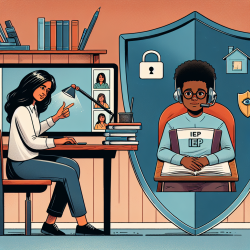The COVID-19 pandemic has reshaped many aspects of our lives, including how we deliver essential services like intimate partner violence (IPV) interventions. With the necessity to pivot to virtual platforms, service providers faced unprecedented challenges in ensuring these interventions remained safe, equitable, and accessible. The research article "Perspectives on delivering safe and equitable trauma-focused intimate partner violence interventions via virtual means: A qualitative study during COVID-19 pandemic" offers crucial insights into overcoming these challenges.
Understanding the Challenges
The study highlights that the concepts of equity and safety are particularly complex for individuals affected by IPV, especially those from underserved populations. These individuals often face systemic barriers that hinder their access to necessary interventions. During the pandemic, these barriers were exacerbated by factors such as digital divide issues, lack of safe spaces for virtual consultations, and increased isolation with abusers.
Barriers Identified:
- Digital Divide: Many individuals lack access to stable internet or necessary devices for virtual therapy.
- Safety Concerns: Ensuring privacy and confidentiality in a shared living space can be challenging.
- Cultural Sensitivity: Interventions must be culturally appropriate to be effective.
Strategies for Improvement
Practitioners can enhance their delivery of virtual IPV interventions by implementing several strategies highlighted in the study:
- Acknowledge Systemic Barriers: Understanding and addressing systemic inequities can help tailor interventions to meet diverse needs effectively.
- Enhance Digital Access: Advocate for policies that improve digital infrastructure and provide devices to underserved communities.
- Create Safe Virtual Spaces: Develop safety plans with clients that include code words or signals to ensure they feel secure during sessions.
- Culturally Informed Care: Engage with clients to understand their cultural contexts and adapt interventions accordingly.
The Path Forward
This research underscores the importance of collaborative efforts across social, health, and political systems to create a supportive environment for virtual IPV interventions. Practitioners are encouraged to continue exploring innovative solutions and participate in further research to refine these approaches.
To read the original research paper, please follow this link: Perspectives on delivering safe and equitable trauma-focused intimate partner violence interventions via virtual means: A qualitative study during COVID-19 pandemic.










